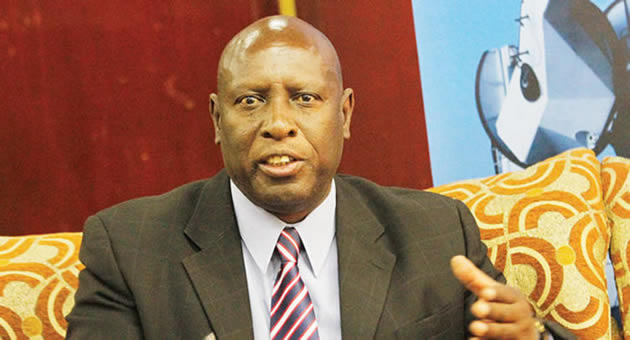100MW electricity from Mozambique to relieve Zim consumers

Felex Share Harare Bureau
ZESA Holdings is likely to revise its proposed increase in electricity tariffs following negotiations taking place with Electricidad de Mocambique (EDM) to import 100MW.
The firm’s senior officials are in Mozambique where they are expected to seal the deal today, a development energy experts said would impact on the tariff increase the power utility has applied for.
The energy experts said if the deal is successful, as is widely expected, increased imports coupled with stable local power generation, would “dilute the bulk supply tarriff”, meaning that it would complement the power utility’s generation capacity.
The power utility has proposed to push the tariffs to about 14 cents per kilowatt per hour up from 9,86c/Kwh.
The proposed increase in the power tariff has faced resistance from farmers, industrialists and miners who argue that the move would push up their production costs.
Zimbabwe has been enjoying an improved power supply situation in the past few weeks with 300MW coming from Eskom of South Africa beginning last month.
The 100MW from Mozambique will be important to the national grid considering that a city like Mutare needs at least 200MW a day, experts said.
Zesa spokesperson Fullard Gwasira confirmed their officials were in Mozambique for negotiations with EDM.
“I can confirm that Zesa officials left to negotiate with EDM for additional power imports,” he said. “This is against the background of the demand and supply mismatch, where demand is higher than supply.
“Zesa will always look for opportunities to eradicate this deficit. I can’t comment further on the deal until it is concluded. These power imports explain the improved power supply in the country. There has been no load shedding in the past weeks because of interventions by sister utilities and our own initiatives.”
Gwasira said the power imports were pre-paid, hence the need for consumers to do the same.
“For all these initiatives in the region, we are pre-paying and we urge customers to pre-pay because this is the only way we can guarantee this improved electricity supply situation,” he said.
As at yesterday, Zimbabwe was generating 1,270MW against a forecast demand of 1,400MW and if the power imports of more than 300MW are added, it means supply will exceed demand.
Sources said the negotiations for the supply of 100MW from Mozambique were almost complete.
“If all goes according to plan, the officials will seal the 100MW deal tomorrow,” said a source. “If successful, load shedding will be reduced and it also has a net effect of further diluting the bulk supply tariff. Power imports make electricity available as well as affordable.”
The Zimbabwe Energy Regulatory Authority is holding stakeholder consultations on the proposed increase and is meeting farmers, industrialists and miners, among other stakeholders.
Energy and Power Development Minister Samuel Undenge has indicated that there was no going back on a tariff increase because Zesa has to urgently finance required power generating projects.
The average electricity cost in the Southern African region is 14c/kWh.
Among projects expected to ease the current power crisis is the 200MW emergency power plant to be installed at Dema Substation in the next seven weeks.
The government is also working on various projects, chief among them the expansion of Kariba South Power Station and Hwange Units 7 and 8, to add 300MW and 600MW respectively to the national grid.
While the big projects materialise, the Dema emergency diesel power plant would be complemented by another 120MW from the Mutare Peaking Power Plant, which is expected to take under 18 months to complete.
The plant is one of the priority projects targeted under Zim-Asset, and contract negotiations between the contractor, Helcraw Electrical (Pvt) Ltd and the Zimbabwe Power Company have been concluded.
Several power stations are being upgraded, with Zesa Holdings recently securing a $87 million loan from India to retool Bulawayo Thermal Power Station.
The country has been facing a serious power shortage that has affected industry, farmers and domestic consumers as a result of low investment in electricity generation.











Comments